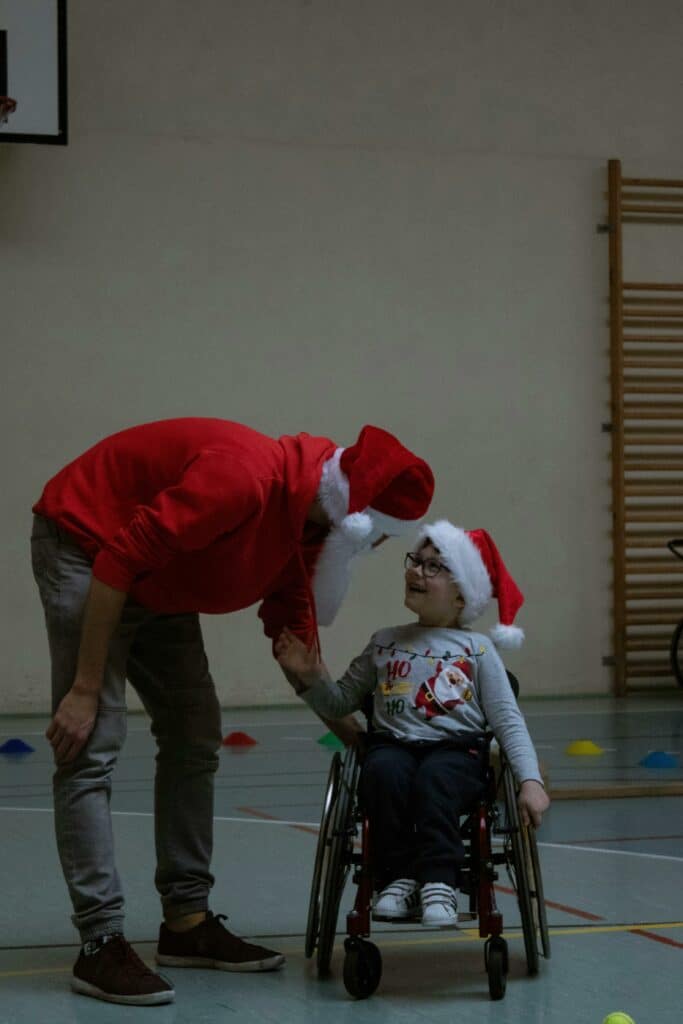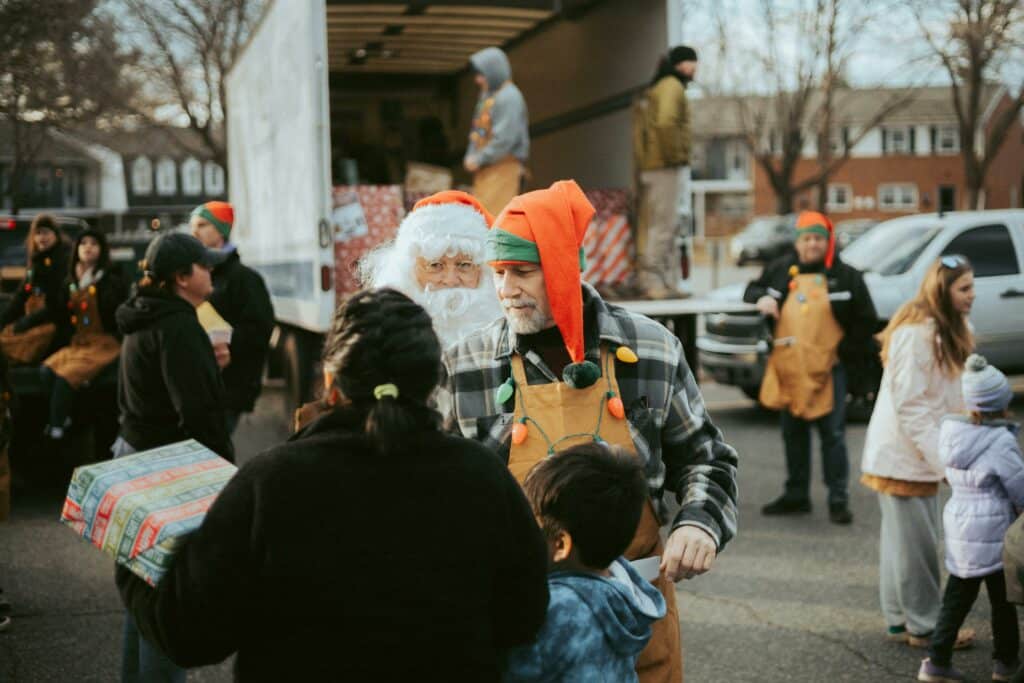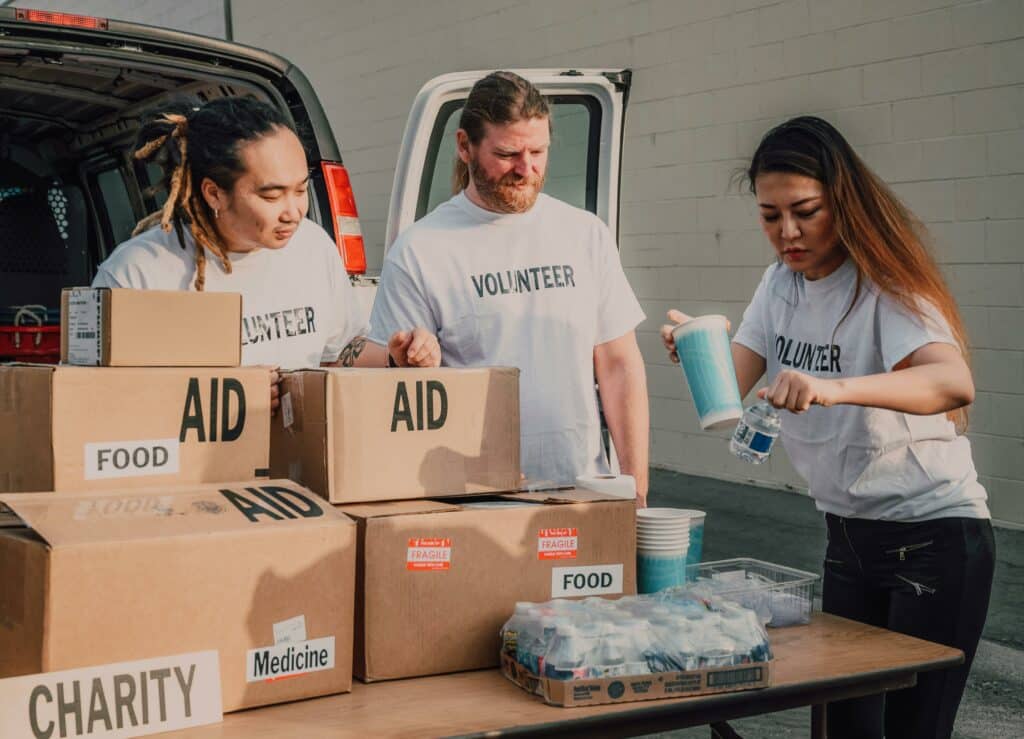The holiday season is not only a time for joy and celebration but also a unique opportunity to give back to the community. Volunteering during this festive period combines a desire for altruism with the chance to positively impact society and enhance personal well-being. While we exchange gifts and spend time with loved ones, there are many people who depend on our support. Acts of selflessness and supporting disadvantaged groups can strengthen community bonds and improve our own mental health, as altruism, especially in challenging times, has been proven to positively impact personal well-being. Below, we’ll explore the diverse ways to volunteer during the holidays and the benefits it brings to both us and our communities.
The Importance of Volunteering During the Holidays
The holiday season is a time of giving, and for those who need support, it can be especially challenging. Volunteering plays a crucial role here: from soup kitchens and homeless shelters to gift drives for underprivileged children, there are countless ways to get involved and make a positive difference.
During this season, which emphasizes values like compassion and togetherness, volunteering has a special significance. It provides not only essential help for those who need it most but also fosters a sense of community. By helping others, we not only strengthen our communities but also enhance our own well-being. Holiday volunteering is a powerful way to live out solidarity and contribute to a better world.

Altruism and Mental Health
Altruistic actions, or selflessly supporting others, have profound positive effects on our mental health. Studies show that people who volunteer report higher levels of happiness and life satisfaction. This so-called “Helper’s High” occurs as the brain releases endorphins through giving – hormones that create a sense of well-being and inner peace. Altruism also activates the brain’s reward system, particularly areas that release dopamine, associated with joy and motivation. Especially during stressful times like the busy holiday season, altruism can help shift focus away from personal burdens and reduce stress. Check here for various reasons to embrace altruism.

Positive Impact on the Community
Volunteering not only improves personal well-being but also creates positive changes in the community. Collective engagement fosters social bonds, new friendships, and a sense of unity. Additionally, projects supported by volunteers help improve living environments, whether through clean-up drives, aiding those in need, or creating safe public spaces.
Ways to Volunteer During the Holidays
Before getting involved, it’s important to choose projects that align with your interests and skills. Focus on causes that matter to you and leverage your strengths to make a meaningful contribution. Plan ahead and set specific times to fit volunteering into your holiday schedule. Remember: even small acts and short time commitments make a big difference—every bit helps!
Here are a few ways to get involved this holiday season:
- Supporting Local Organizations: Soup kitchens, food banks, and homeless shelters often seek volunteers to distribute meals or organize donations.
- Gift Drives for Underprivileged Children: Many charities collect toys and clothing to bring joy to children from low-income families.
- Virtual Volunteering: Support mentoring programs or participate in online projects that benefit people globally.
- Neighborhood Assistance: Help elderly or isolated neighbors by running errands, shoveling snow, or simply spending time with them.
- Organizing Fundraisers: Arrange a fundraising drive among friends or colleagues to collect money, food, or clothing for local charities.
If you’re unsure where to start, here’s a guide to various volunteering opportunities across Germany that need your support.
Personal Benefits of Volunteering and Altruism
Learning New Skills
Volunteering offers a chance to learn new skills or expand existing ones. You can develop social, organizational, or even practical skills. These abilities benefit not only your personal life but also your career, such as teamwork, project planning, or managing resources.
Promoting Mental Health
Altruistic actions have proven positive effects on mental health. Studies show that selfless behavior releases endorphins and dopamine, boosting well-being. Volunteering helps reduce stress, fosters a sense of purpose, and even lowers the risk of depression. Especially during the busy holiday season, volunteering can shift focus from personal pressures and provide inner calm.


Boosting Self-Confidence
Engaging in projects that help others often brings immediate gratitude and recognition, boosting self-esteem and creating a sense of importance in society.
Sense of Purpose
Volunteering provides the opportunity to be part of something greater. It gives a sense that your actions have real significance and bring positive changes, especially valuable in times of uncertainty or self-doubt.
Improving Work-Life Balance
Focusing on volunteering and social contributions helps create a balance between work and leisure. Helping others allows you to step back from work obligations and recharge.
Increasing Emotional Intelligence
Working with people from diverse backgrounds develops empathy and compassion, skills that strengthen personal relationships in both everyday life and work.

Conclusion
Holiday volunteering is a wonderful way to give back to the community while enhancing personal well-being. Altruistic acts not only improve the lives of others but also benefit mental health, create social connections, and provide a sense of purpose. Yet doing good shouldn’t be limited to the holiday season. Volunteering can be integrated meaningfully throughout the year, as its positive effects are lasting for both you and society. Every contribution counts, any time of year.




